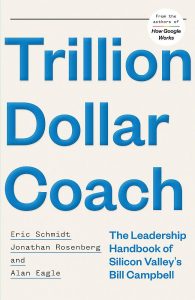
Project Aristotle at Google – characteristics of most successful teams. Psychological safety, had clear goals, meaningful roles, members were reliable and confident that teams mission was meaningful- making a difference
Not just individuals but teams need coaching
Teams of ambitious smart individuals have tension, to manage that tension well and build a community
Coaching is most effective way to transform effective people into powerful teams. Team coaching.
What would Bill do? His coachees had become good coaches themselves
Google disorg experiment- fired all managers from the engineering department.
Make people feel valued. Listen. Pay attention. This is what great managers do.
If you are a great manager your people will make you a leader.
It’s the people – manifesto
Start meetings with trip reports. What you did over weekend? Get to know and get everyone involved in a fun way. Empathy increases and people share their views easily. Weigh in without nudging
Get 1:1 right and get staff meetings right. Two critical mgmt principles. Get most important decisions to staff meetings with X functional teams. Share openly and get feedback. Tackle challenges together.
Prioritise – top 5 items. List them on a whiteboard.
1:1 meetings – start with personal stuff. What are you working on? Where do you need help? How are peer relationships? More important than top down. How are teams doing? How to course correct? How to balance innovation and execution?
Functional discussions led by functional experts. General ones led by team leaders
Real challenge if the manager in charge of the decision thinks she knows what to do. Leader should speak last. Let the team come to the conclusion/decisions
Managers job is to break ties and make their people better
Failure to make a decision as damaging as a wrong decision. Do something even if wrong.
Throne behind the round table – step in as the leader when the situation demands
Define the first principles for the situation, company or product – the immutable truths that are foundation.
If you have the right product for the right market at the right time, move at speed. Minor things will go wrong and will be fixed on the way
Coach only the coach able. Attributes of coachable- honesty n humility, willingness to persevere and work hard and a constant openness to learning. Self awareness of strengths and weaknesses
Leadership is not about you, it’s about service to something bigger- your company your team
Active listening and respectful inquiry – leader asks open Qs and listens attentively to the responses . Heightens followers feelings of competence , relatedness and autonomy
Don’t tell your team what to do, tell them stories about why we are doing it
Relational transparency- listening, providing honest feedback, demanding candour.
Managers job is to make the team mores courageous. Be the person that gives energy rather than takes it.
Work the team not the problem. If the right team is at the problem, they will fix it. Pick the right players. Hire for potential. hire for ability to contribute to the team.
Pair people for better peer relationships. Critical for better decisions.
# Key Takeaways:
– The importance of having a coach or mentor in business and leadership
– The role of trust, empathy, and authenticity in coaching and leadership
– The power of building strong relationships and creating a supportive team culture
– The value of giving and receiving feedback in order to improve and grow
– The impact of setting clear goals and holding oneself accountable for achieving them
– The significance of continuous learning and adapting to change in a fast-paced business environment
# Practical Application:
– Identify a mentor or coach who can provide guidance and support in your career or business endeavors
– Focus on building trust and empathy with your team members to create a positive and collaborative work environment
– Encourage open and honest communication, and actively seek and give feedback to improve performance
– Set clear goals and hold yourself accountable for achieving them, while also supporting and empowering your team to do the same
– Continuously learn and adapt to changes in the industry and market to stay ahead of the competition
# Valuable Insights for Leaders and Managers:
– Chapter 2: “The Trillion Dollar Coach”
– This chapter introduces the concept of coaching and the impact it can have on individuals and organizations.
– Chapter 4: “The Trust Triangle”
– This chapter delves into the importance of trust in coaching and leadership, and how it can be built and maintained.
– Chapter 6: “The Art of Feedback”
– This chapter discusses the value of giving and receiving feedback, and how it can lead to personal and professional growth.
– Chapter 9: “The Culture of Teamwork”
– This chapter explores the role of team culture in achieving success and creating a positive work environment.
– Chapter 11: “The Power of Listening”
– This chapter emphasizes the importance of active listening in coaching and leadership, and how it can improve relationships and communication.
# Case Studies and Examples:
– The story of Bill Campbell’s coaching journey with Steve Jobs and the success of Apple
– The example of Google’s “OKR” (Objectives and Key Results) goal-setting system and its impact on the company’s growth
– The case study of Intuit’s transformation under Bill Campbell’s coaching and leadership
– The story of how Bill Campbell helped Eric Schmidt become a successful CEO at Google
– The example of how Bill Campbell’s coaching helped the Golden State Warriors become a winning team.
Leave a Reply